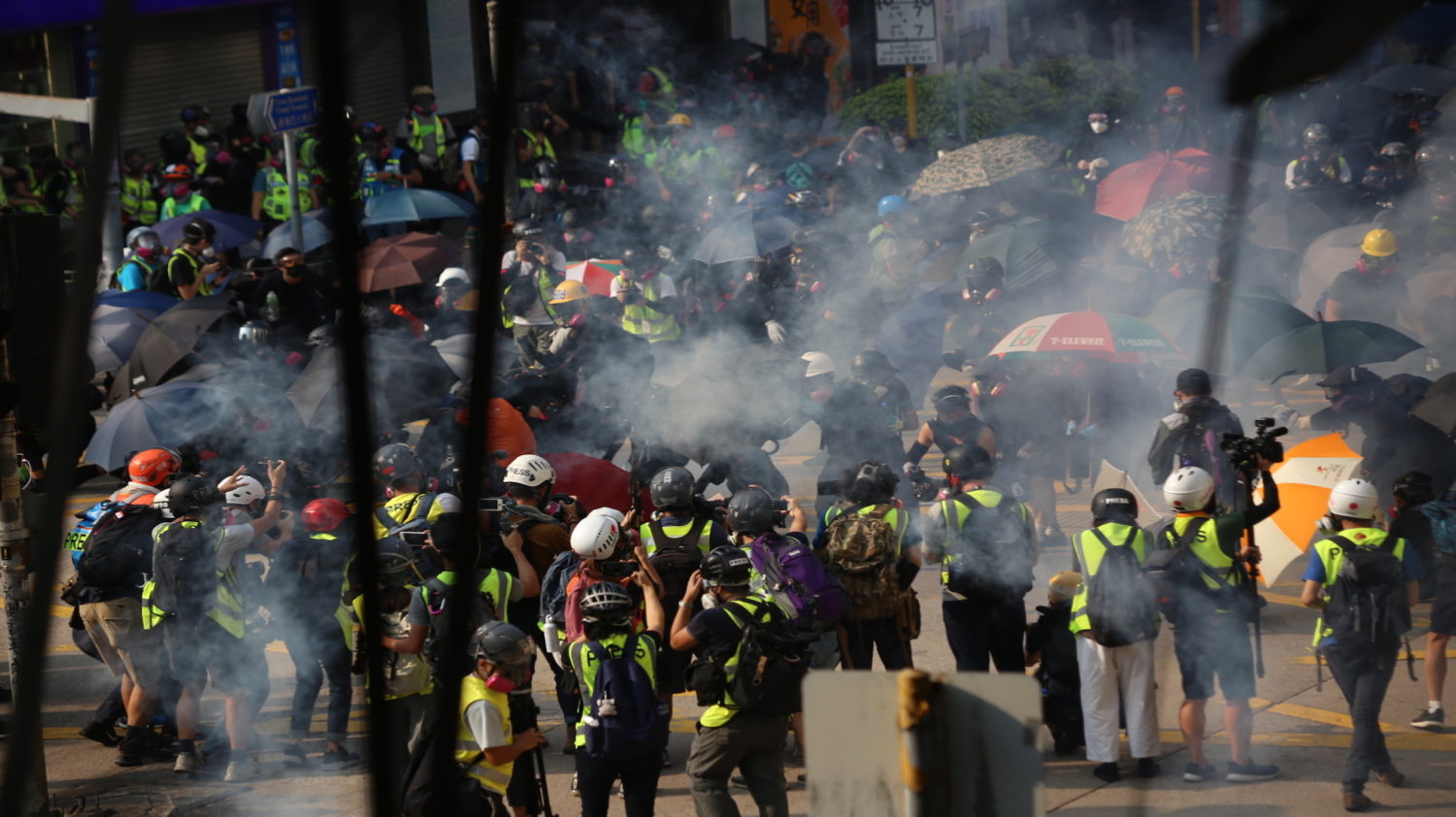Leading the world
The UK is inconsistent in its commitment to human rights. If we truly want to be a force for good in this world, greater cooperation is vital, writes Benjamin Ward.
The challenges we face right now can seem insurmountable. Covid-19 is transforming our world. The climate crisis, the ongoing impact of Syria’s conflict, and the assault on our rights and our democratic institutions from authoritarian leaders will rightly continue to occupy attention.
Responding to these challenges requires multilateral action and cooperation. Yet they come at a time when the UK has chosen to leave a major values-based multilateral organisation – the European Union.
Brexit does not mean that the UK can no longer play a positive role in the world. It does, however, require the UK to make the right choices. It should continue to work with partners in Europe and around the world and to prioritise core values like human rights, the rule of law, democratic institutions and accountability for serious crimes.
Standing up for those values is critically important.
In the last few years, we have seen those who try to protest injustice face repression in many parts of the world, with sometimes violent responses, including in Hong Kong, Iraq, Sudan, Iran, Russia, Venezuela and Nigeria.
Today, human rights defenders are subject to state repression, including politically motivated jailing for their peaceful activism in many countries, such as Rwanda, Azerbaijan, India, and Egypt.
The government has said many of the right things about its ambitions for the UK to lead the world post-Brexit. In September last year, the foreign secretary Dominic Raab spoke about the UK being ‘a force for good’. The government has embarked on comprehensive review of security, defence, and foreign policy which offers a chance to show what that approach will mean in practice.
The critical question is whether the UK is serious about standing up for shared values and willing to work with others to defend them. So far, its record is decidedly mixed.
There certainly are positives. The UK continues to play an important role at the UN Human Rights Council. The government plans to introduce ’Magnitsky Act’ style mechanisms – based on US measures to sanction human rights offenders – to impose travel bans, asset freezes and seizures on people involved in serious human rights abuses around the world. It has, together with Canada, opened a global campaign for media freedom.
The UK has also shown leadership at the UN in addressing China’s repression of Turkic Muslims in Xinjiang. This has included an intervention at the General Assembly, where the UK delivered a statement on behalf of some two dozen countries condemning persecution and mass arbitrary detention by Beijing.
The UK government also looks set to maintain human rights clauses in trade agreements that will continue EU trade terms. It has committed to support human rights defenders around the world, including through its diplomatic posts. And it has committed to maintain a strong focus on education for girls around the world.
On the negative side of the ledger, the UK government seems determined to reject forms of international cooperation that involve ongoing EU ties, even when maintaining them would be in the UK’s obvious interest – such as the European arrest warrant, maintaining rights of workers, or preserving security cooperation.
There is even renewed talk of the UK leaving the Council of Europe – the region’s main human rights body – so that the government can water down human rights protections in domestic law. Such a move could embolden governments like Russia and Turkey who would prefer a muted Council of Europe, and thereby risks weakening human rights protection and access to justice for millions of people across the continent and as well as in the UK.
And the government is failing to speak out forcefully in the face of serious abuse, including in Saudi Arabia, Hong Kong, Turkey, Israel/Palestine, and Rwanda. If the UK is serious about its commitment to media freedom, and to human rights defenders like Bahrain’s Nabeel Rajab, it needs to be willing to speak out when they are threatened, including by countries with whom the UK has close ties.
Then there are the countries and issues where the government has taken some positive steps and could be doing a better and more principled job; places like Sri Lanka and Myanmar, where it should use its positions of leadership at the UN Human Rights Council and Security Council respectively to press for accountability for serious crimes against civilians.
Then there is Yemen, where the UK’s admirable humanitarian efforts are overshadowed by its ongoing desire to arm the Saudi-UAE-led coalition despite deep evidence of war crimes. UK exports have only been halted because of litigation in the UK courts.
International justice is a good illustration of the UK’s inconsistent approach – it is a member of the InternationalCriminal Court (ICC) and has historically backed international justice in Rwanda and the former Yugoslavia. More recently it has pushed for accountability over Syria and Libya. Yet the UK government is actively contemplating immunising historic abuses by its own forces in Iraq and Afghanistan. The UK has been among a handful of ICC member countries pressing for arbitrary limits to the court’s budget at a time when its workload is growing. It has also called for timelines for completion of the prosecutor’s preliminary inquiries, one of which concerns allegations of abuse involving UK forces in Iraq. This is not good enough from a country that helped create and codify international humanitarian law.
In some cases, the UK’s execution fails to match up to its ideals. The government here has positioned itself as a global leader on preventing sexual violence in conflict, but a recent independent review found that its multimillion pound initiative lacked vision, strategy, and rigorous monitoring, calling its efficacy into question.
On trade, there is a worry that human rights clauses in fresh trade agreements will be abandoned or rejected, robbing the UK of leverage at one end, and of an obligation to uphold high standards at the other. The government’s reluctance in Brexit talks to be bound by EU standards on labour and other rights derived from EU law does not bode well in this regard.
What can be done to encourage the UK government to make a commitment to human rights a consistent part of its foreign policy?
The UK parliament has a crucial role to play including through the foreign affairs and development select committees and both houses must scrutinise legislation and policies to ensure that the UK is acting in a way that is consistent with its values and that it is cooperating with others to maximise the effectiveness of its efforts. The UK’s hosting of the next UN climate change conference – COP26 – when it is rearranged after the coronavirus crisis, will offer an opportunity to reflect on the importance of that cooperation.
As the main opposition party, Labour has a particular duty to play a principled role. Key activities should include helping to shape the comprehensive security, defence and foreign policy review, identifying key priorities for action and setting out practical arguments for the public about the continued importance of engaging with the world, including partners in Europe, in the Council of Europe and the United Nations.
The UK is an island state. When it comes to dealing with the world’s challenges and standing up for core values, however, it cannot go it alone.
Image credit: Katherine Cheng/Flickr

